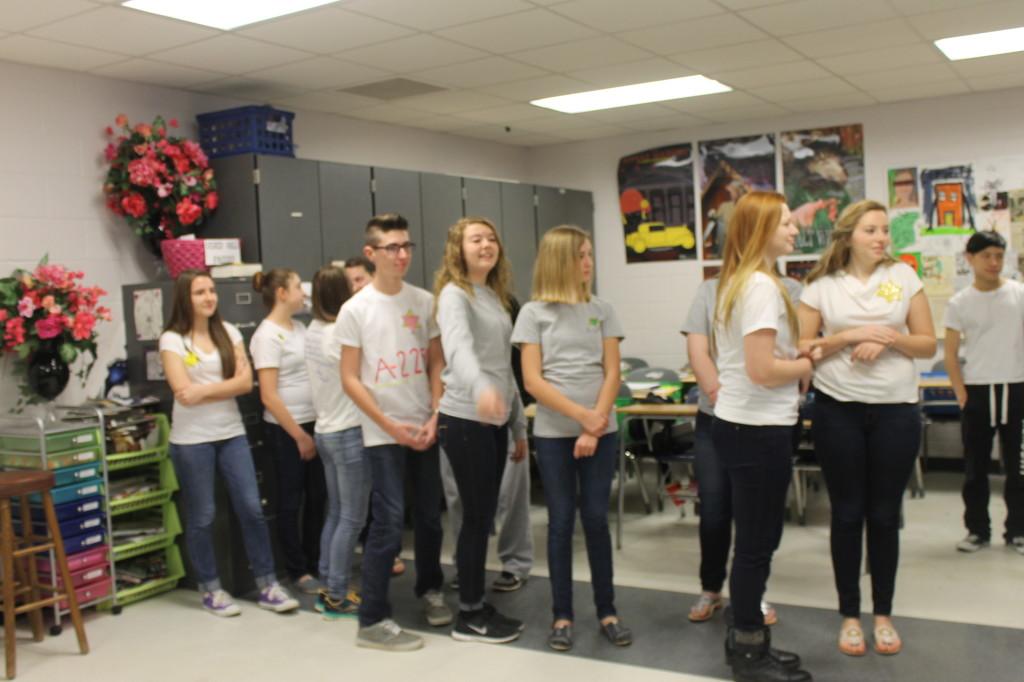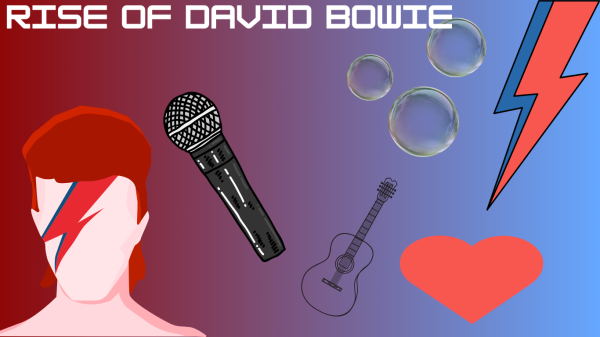Wiesel’s words impacting students
Students step forward during the line game for the beginning question
“It’s one of the most powerful books I’ve ever read,” said honors English and creative writing teacher, Mrs. Mariah Blankenship.
Two years ago, Night by Elie Wiesel was added to the ninth grade honors English reading list. This book documents the life of Wiesel and his survival in a Nazi German concentration camp. The horrifying and chilling truth about the Holocaust is revealed more through this novel page after page.
While studying and discussing Night, Blankenship’s students are required to participate in three activities: creating a shirt, playing the line game,and writing a journal entry.
The shirts are similar to the outfits concentration camp prisoners wore. On them there is an identification number, a favorite quote from the book, a paperclip, and a symbolic badge.
The number is the student’s new identity rather than their name. Identification numbers were used during the Holocaust to keep track of all of the victims. The paper clip on the collar represents the small but meaningful protests of prisoners during World War II.
This school year, students were asked to pick a symbolic badge such as antisocial, homosexual, or immigrant. Their choice could directly relate to their lives or be an issue they feel is still relevant today. During the Holocaust, guards would use badges like these to label a person and discriminate against them.
Freshman Kaitlyn Brinkley said, “By wearing the shirts, I felt that we were showing the school and world how we feel about the Holocaust and how it impacted us.”
After showing their shirts to the class, students play a line game inspired by the movie Freedom Writers. Blankenship added this activity to the study of Night because she wanted something that would “bring the book to life.” The concept of the game is to walk towards the middle of the room (or on the line) if the question asked applies to them.
Questions start out simple such as watching television shows then go into deeper topics such as death of a loved one or depression. In the past, students have even shed a few tears seeing their classmates step forward.
The goal of this activity is to show students how similar they are in their struggles and teach them to be tolerant of everybody despite their differences.
“It brings them closer as a class and makes them feel more connected to each other,” said Blankenship.
“[Playing the game] was a little strange at first, but it helped show me that a lot of people are going through the same things I am,” responded Brinkley.
After that, each individual writes a journal entry in their notebook. It is written about the impact and effects studying Night had on their lives. Students may share the entries to the class or keep them private if they wish.
Although this book is based around a tragedy, it has a special way of inspiring students. It teaches them tolerance, valuable lessons, and the duty everyone has to speak up for injustice. As Wiesel said, “Those who kept silent yesterday will remain silent tomorrow.”
Blankenship intends to study Night with her future classes because she feels like it is a heartfelt and eye opening experience.
As for the way it will impact upcoming students, she says, “Kids are kids and people are people. They all react in similar but different ways.”
Your donation will support the student journalists of Tunstall High School. Your contribution will allow us to purchase equipment and cover our annual website hosting costs.

Lia Haskins is a freshman and first time journalism student. She enjoys reading, writing, playing the flute, running cross country and track, and many...














